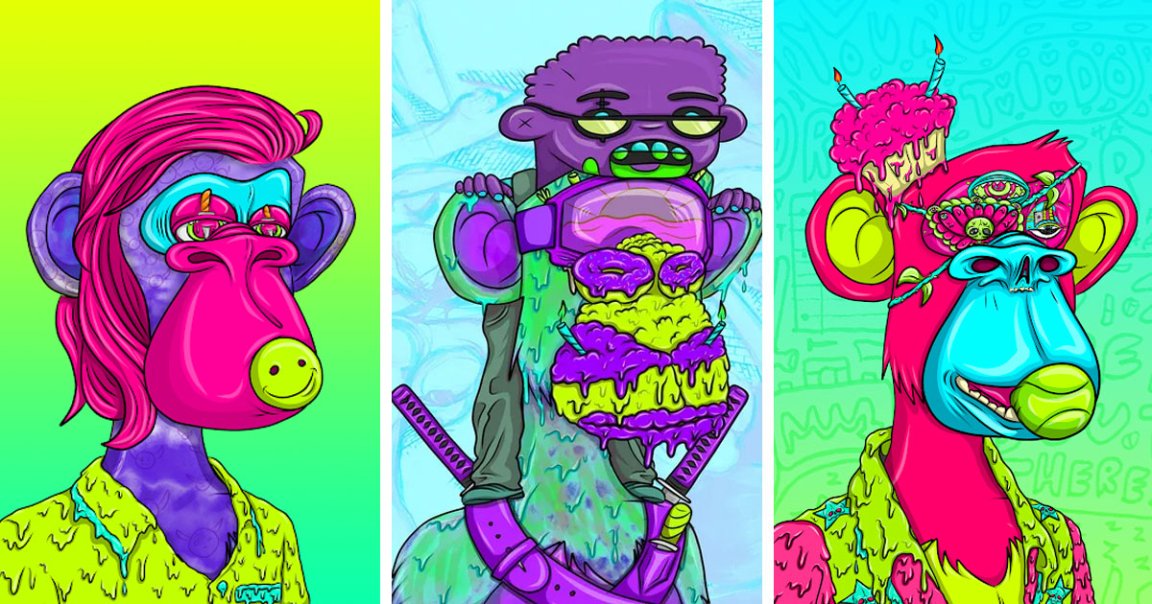
The people behind a spinoff project based on the mega-popular Bored Ape Yacht Club (BAYC) NFT collection are suing each other in federal court over who gets what share of the profits and who gets to claim ownership of their brand new collection, Bloomberg reports.
It’s a messy back-and-forth representative of a much larger issue in the blockchain world — telling who is entitled to what in the world of NFTs can often be clear as mud.
And that kind of uncertainty is leading to more and more infighting and lawsuits, especially given the massive amounts of money involved.
Taylor Whitley, Jacob Nygard, and three others launched their BAYC spinoff collection called Caked Apes in January, and, according to their dueling lawsuits, are now in major disagreement about who gets what piece of the considerable pie.
The collection sold out of almost 9,000 Caked Apes NFTs, generating over $2 million in revenue, Bloomberg reports.
In brief, Whitley claims in his suit that the other four Caked Apes members took his original designs and booted him from the project, while Nygard and the three remaining partners allege that Whitley tried to take ownership of their shared venture and also abused copyright law to get the NFTs delisted.
While all this finger-pointing and reference to IP law is nothing new to joint ventures gone sour, this is, as Whitley’s attorney John Snow told Bloomberg, “one of the first cases dealing with the Bored Ape license and what’s allowed and not allowed.”
Finger-pointing aside, owning a Bored Ape grants NFT holders unlimited derivative license, making all the spinoff projects created by those who purchased official BAYC NFTs technically legal, Bloomberg notes.
Clearly, very little love has been lost between Whitley and the rest of the group. Nygard and the other three partners argue Whitley’s claim to the IP plus ten percent of the revenue is bogus because he “contributed no original drawings to the Caked Apes creations,” according to a statement obtained by Bloomberg.
“Once Taylor saw the sales of Caked Apes take off,” the collective said in their countersuit, “he tried to renege on our agreed-upon deal and claim a bigger piece of the pie with no legal or ethical grounds to back up his claims.”
Whitley, however, sees his alleged ousting as a breach of contract.
It’s a convoluted and bitter fight that likely won’t resolve itself any time soon. But it will be interesting to start to see the courts catch up with the strange new world of blockchain ventures — so maybe, in the end, we’ll get some new clarity.
READ MORE: Bored Ape NFT Spinoff Venture Gone Sour Sparks Legal Fight [Bloomberg]
More Ape-ing: Bored Ape Launched a Coin And So Far, It’s Not Going So Great